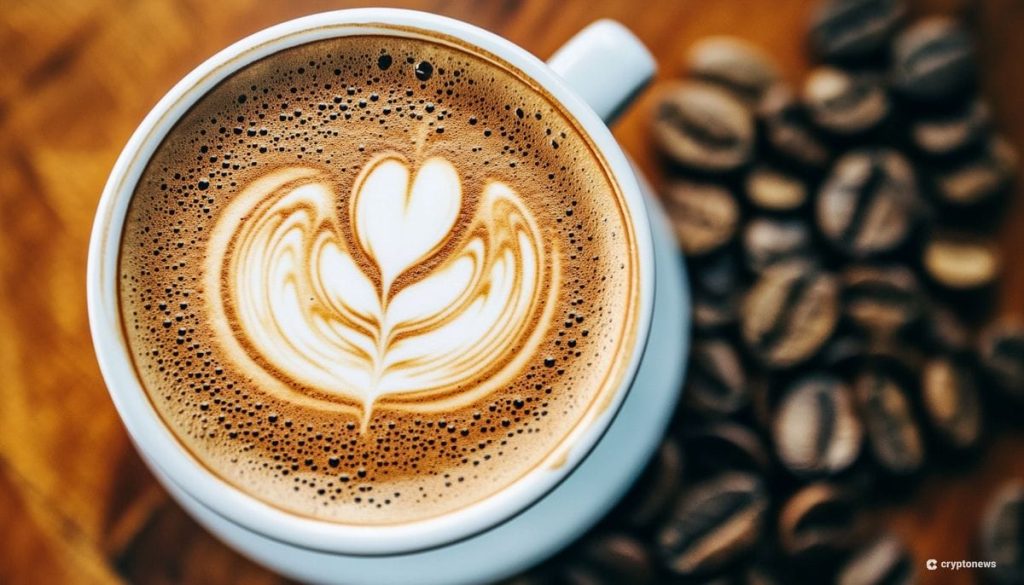Summarize this content to 2000 words in 6 paragraphs
Last updated:
August 9, 2024 07:15 EDT
Reporter
Rachel Wolfson
Reporter
Rachel Wolfson
About Author
Rachel Wolfson has been covering the cryptocurrency, blockchain and Web3 sector since 2017. She has written for Forbes and Cointelegraph and is the host and founder of Web3 Deep Dive podcast.
Share
Last updated:
August 9, 2024 07:15 EDT
Why Trust Cryptonews
With over a decade of crypto coverage, Cryptonews delivers authoritative insights you can rely on. Our veteran team of journalists and analysts combines in-depth market knowledge with hands-on testing of blockchain technologies. We maintain strict editorial standards, ensuring factual accuracy and impartial reporting on both established cryptocurrencies and emerging projects. Our longstanding presence in the industry and commitment to quality journalism make Cryptonews a trusted source in the dynamic world of digital assets. Read more about Cryptonews
Stablecoins are on the rise, becoming one of the most widely used forms of crypto payments to date. This has become evident as major payment service providers like Stripe have recently announced support for USDC.It’s also notable that the total stablecoin market capitalization currently sits at above $164 billion, which is up 26% from the beginning of the year. Coinbase Partners with Coffee Shops To Enable USDC PaymentsGiven the soaring popularity of stablecoins, it shouldn’t come as a surprise that new payment use cases are beginning to emerge. Most recently, crypto exchange Coinbase launched “Coffee Days,” which is an initiative to bring USDC payments to local coffee shops around the world. Chintan Turakhia, Senior Director of Product Management for Coinbase Wallet, told Cryptonews that during Coffee Days (which runs until end of August) participating shops will offer $1 cold brew or iced latte drinks when customers pay with USDC via the Coinbase wallet. “Customers at participating coffee shops can redeem a free cup of coffee by getting onchain,” Turakhia said. “Drinks are then $1 when customers pay with USDC at these coffee shops.”USDC Payment at Coffee Shops May Drive Adoption Currently, there are 10 coffee shops participating in Coffee Days – most are located in the United States, Toronto and Berlin – but Turakhia mentioned that more shops may be added over time. “The motivation behind this initiative is to make it simple and delightful for users to pay with USDC using the Coinbase wallet,” he added. “We frequent coffee shops all the time and now we are enabling both customers and merchants to accept USDC on Base to drive adoption.” Turakhia further remarked that while paying with USDC may be foreign to some consumers, he believes that the Coffee Days initiative makes the process easy and similar to paying with a traditional credit card. “There is beautiful signage in all the participating shops with a QR code that says ‘dollar coffee all summer long,’” he said. “Users scan the QR code to redeem the free coffee. Users can then purchase $1 drinks through the Coinbase wallet using USDC payments. They can just tap the point of sale system at the register or scan a QR code to pay.” While there are small transaction fees (gas fees) associated with USDC payments, Turakhia shared that Coinbase covers these fees. “One of the reasons we want to emphasize stablecoin payments is because it mimics the U.S. Dollar and currency merchants are already receiving, versus something volatile like Bitcoin or Ethereum payments,” he remarked. Coffee Shops Accepting Crypto Payments Isn’t A New ConceptAlthough Coinbase launched its Coffee Days initiative on August 8, the crypto exchange has previously partnered with coffee shops. In March this year, Coinbase announced a partnership with Compass Coffee in Washington D.C. that enabled the shop to accept USDC payments. Unsurprisingly, Compass Coffee is also participating in the Coffee Days initiative. Coffee chain giant Starbucks have also announced support for Bitcoin (BTC) payments in crypto-friendly regions like El Salvador. In 2022, Starbucks also launched its own non-fungible tokens (NFTs) as a rewards program. Unfortunately, the multinational coffee chain ended its NFT rewards program in March of this year.USDC Payments Enable Transparency For Merchants and ConsumersWhile it’s too soon to determine the success of the Coffee Days initiative, the benefits behind USDC payments may catch on. For instance, all transactions made on Coinbase’s Base network are transparent and direct, which can help local merchants in various ways. Wade Preston, the owner of Prevail Coffee in Montgomery, Alabama, told Cryptonews that accepting USDC payments as part of Coffee Days can help connect customers directly with its coffee growers. “Instead of a cut of every sale going to middlemen, it goes directly and transparently to our coffee growing partners like Marco and Maricella Oviedo in Costa Rica,” Preston said. “Programmable money, like USDC on Base, removes a transactional turnstile and replaces it with an authentic connection point that strengthens local and global communities.”Indeed, using blockchain technology can help coffee merchants create a more directly sourced supply chain, allowing customers to understand where coffee beans were produced. Tax Implications Associated with USDC PaymentsAlthough USDC payments may be catching on, it’s important for both businesses and consumers to remember that crypto payments are taxable events. Jonathan Bander, managing partner and head of tax strategy at ExperityCPA – a tax and accounting firm specializing in crypto – told Cryptonews that when you use USDC to purchase a coffee, those transactions are taxable under U.S. law. “This means you might have to report any gains or losses based on USDC’s value at the time,” Bander said. “Even though USDC is pegged to fiat currencies and stays pretty steady, it still needs to be reported for tax purposes.”Bander pointed out that this is unlike regular U.S. dollars, which don’t require special reporting. “USDC is treated as property,” he said. “So, any gains or losses from buying or selling a coffee with USDC need to be reported on Schedule D of your tax return. Schedule D helps you keep track of these gains and losses.”












